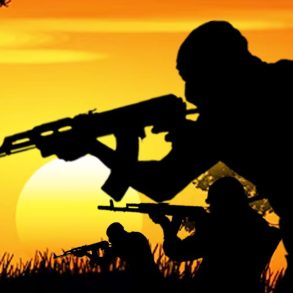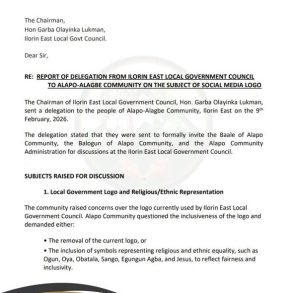April 11, 2025
By Ayinde Adeleke
The Majeobaje Community Development Initiative, a Nigerian non-governmental organization, has expressed deep concern over rising insecurity in the country, particularly in the former Western Region.
In a recent communique, signed by the group Chairman, Chief Akintayo Akin-Deko, the group highlighted the need for urgent action to address growing threats of terrorism and banditry.
Amotekun and Regional Security
Majeobaje welcomed the launch of Amotekun and Forest Guards in Southwest states but emphasized the need for greater collaboration and resource allocation.
The group stated that there is a need for a greater sense of urgency and more resources for equipment.
They also advocated for Amotekun to be restored to its original concept, focusing on professional recruitment and cooperation mechanisms with neighboring states.
The group urged the Inspector-General of Police to lift the ban on firearm licenses for qualified Nigerians.
This move aims to formally include local hunters and vigilante groups in the security architecture, addressing the perception of police bias and promoting more effective security operations.
Majeobaje noted that the ban puts hunters’ lives in danger when supporting security services to track terrorists.
Majeobaje outlined key resolutions to address insecurity which includes engaging with stakeholders to campaign for lifting the firearm ban, community training and orientation to promote lawful responses to security challenges and a trengthening grassroots networks to improve security consultations and migrant monitoring
The group emphasized the need for politicians to prioritize national security and work together to keep Nigeria safe. “We urge politicians not to trifle with the security of the country but to join hands with Mr. President to keep Nigeria safe,” Majeobaje stated.
Insecurity in Nigeria has been a persistent issue, with various forms of threats, including terrorism, crime and inter-ethnic tensions.
The rising wave of insecurity has negatively impacted lives, properties, business activities and Nigeria’s socio-economic development.






